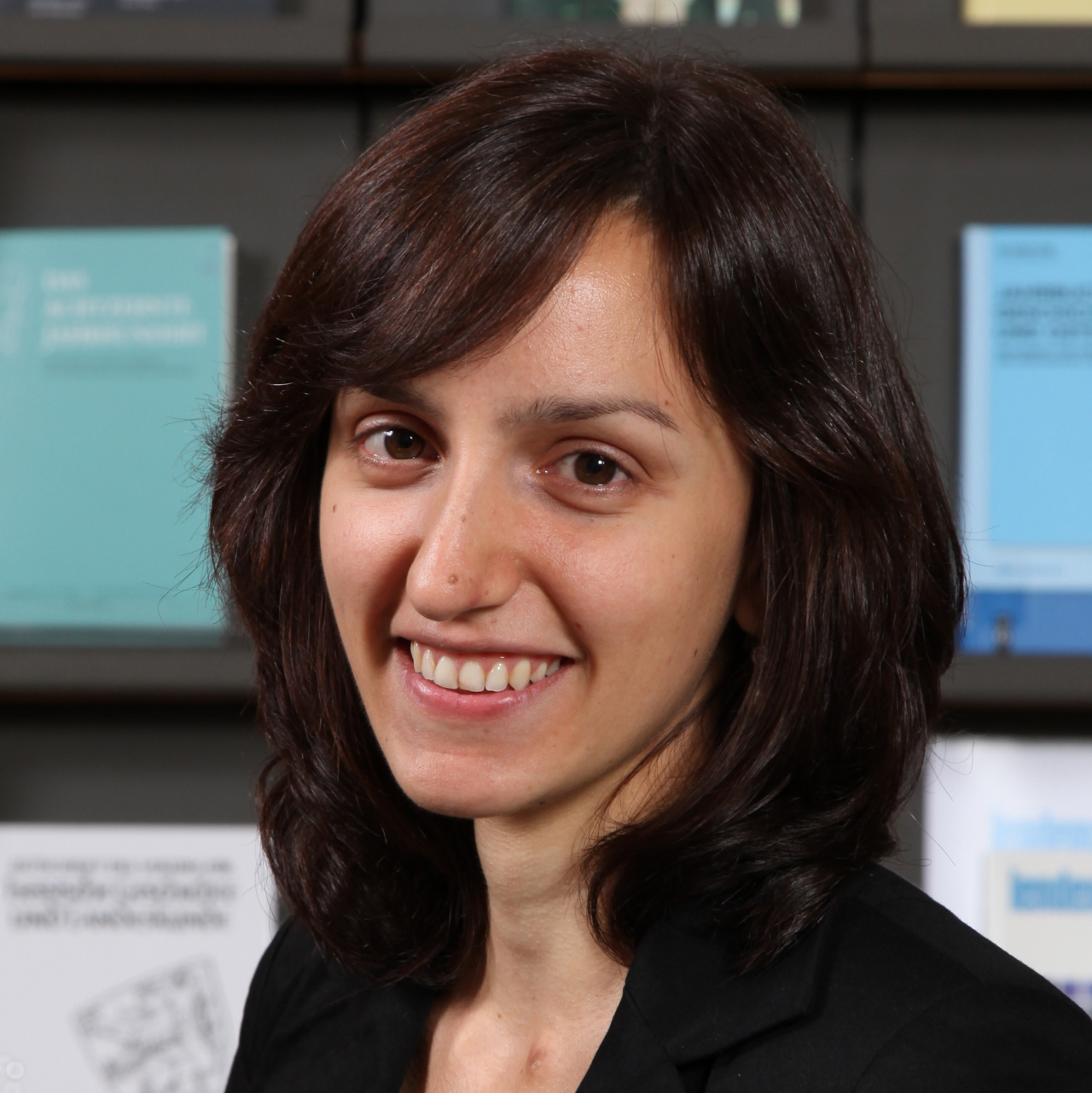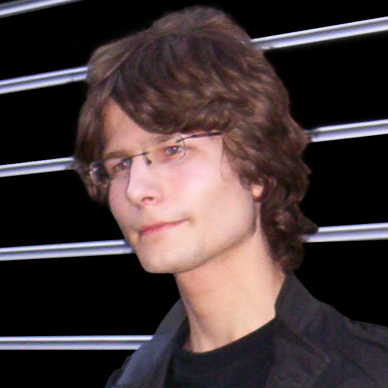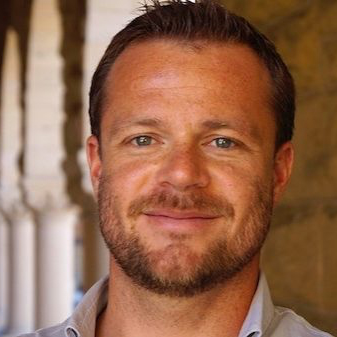
Research Fellows 2019
Fellows in chronological order
In 2019, ten international scholars visited ZeMKI:
- Dr. Lisa Bolz (Sorbonne University, France) (April 23-May 25)
- Dr. Maria Kyriakidou (Cardiff University, UK) (May 9-June 5)
- Dr. Sophie Knowles (Middlesex University London, UK) (June 3-June 26)
- Dr. Lina Dencik (Cardiff University, UK) (September 9-October 4)
- Dr. Simone Natale (Loughborough University, UK) (October 7-November 1)
- Dr. Samuel Van Ransbeeck (University of Manchester, UK) (October 7- November 1)
- Prof. Dr. Peter Lunt (University of Leicester, UK) (October 14-November 8)
- Prof. Dr. Ghislain Thibault (University of Montréal) (October 28-November 22)
- Dr. Jens Pohlmann (German Historical Insititute Washington D.C., USA) (November 20-December 18)
- Prof. Dr. Usha Raman (University of Hyderabad, India) (November 25- December 20)
Dr. Lisa Bolz (Sorbonne University, France)
Lisa Bolz studied communication science, history of science and transcultural studies in Münster, Rome, Heidelberg, Berlin and Paris. She was a doctoral student at the Universities of Paris-Sorbonne and Münster with a dissertation project on the journalistic format of the telegraphic agency devesche and on international news flows in the 19th century. From 2014 to 2017, she worked as a research assistant at the German Historical Institute in Paris, in 2017 she was a guest researcher at Stanford University and currently she is a research assistant at the Institute of Communication Studies (CELSA) at the University of Paris-Sorbonne.
Her work focuses on journalism research, press history, transcultural communication and digital research methods.

Dr. Maria Kyriakidou (Cardiff University, UK)
Maria Kyriakidou is a Lecturer at the School of Journalism, Media and Culture. Her research engages with the relationship between media and globalisation, with a particular focus on the mediation of distant suffering and global crises. Her current research focuses on the mediation of the European ‘refugee crisis’. She has published work on audience engagement with distant disasters, the media coverage of the Euro crisis, and global media events. She is the vice-chair of the ECREA Communication and Democracy Section and of the new Temporary Working Group on the Ethics of Mediated Suffering. Maria teaches BA modules on media, globalisation and journalism, and an MA module on media theory. Before joining Cardiff, Maria was a lecturer in Media, Cultural Politics and Communications at the University of East Anglia. She holds an MSc in Social and Public Communication and a PhD in Media and Communications from the London School of Economics.

Dr. Sophie Knowles (Middlesex University London, UK)
Sophie Knowles is a senior lecturer in journalism and programme leader, Journalism and Communications at the Faculty of Arts and Creative Industries at Middlesex University London. Her PhD based on a trination longitudinal study of the reporting of three financial crises. She has previously held research and teaching posts at: Murdoch University, Australia; City University, London; and the University of Cambridge. Her main areas of research have centred on the role of the media in financial crises, and the way political economy is being shaped and represented by media and understood by the general public. Her publication The Reporting of the GFC and the Declining Quality in Mainstream Financial Journalism: A Longitudinal Tri-Nation Study was nominated for best paper at the ICA. Her book, Mediating financial crisis: watchdogs, lapdogs or canaries in the coalmine, is being published by Peter Lang in 2019 and explores the role of journalists in mediating finance and the economy during times of crisis. She co-edited the book Media and austerity: comparative perspectives and has publoished a paper on the media and financial capability. (Routledge 2018.) She also explores the implications of gender in the newsroom and in news content, and the ways inequality is being represented by the media.

Dr. Lina Dencik (Cardiff University, UK)
Lina Dencik is Reader at Cardiff’s School of Journalism, Media and Culture and Co-Founder/Director of the Data Justice Lab. Her research concerns the interplay between media developments and social and political change, with a particular focus on resistance and globalisation. Recently, she has moved into the areas of digital surveillance and the politics of data and worked on the ESRC-funded project Digital Citizenship and Surveillance Society and the project Managing Threats: Social Media Uses for Policing Domestic Extremism and Disorder funded by the Media Democracy Fund, Ford Foundation and Open Society Foundations. Lina has recently been awarded a Starting Grant from the European Research Council and is Principal Investigator on the project DATAJUSTICE. With the Data Justice Lab, she has also worked on two further projects, Data Scores as Governance funded by the Open Society Fondations and Data Policies funded by IDRC India (in collaboration with IT for Change), and is currently working on a new two-year project Towards Democratic Auditing funded by the Open Society Foundations. She is the author of four books including Media and Global Civil Society (Palgrave Macmillan, 2012), Worker Resistance and Media: Challenging Global Corporate Power in the 21st Century (co-authored with Peter Wilkin, Peter Lang, 2015), and Critical Perspectives on Social Media and Protest: Between Emancipation and Control (co-edited with Oliver Leistert, Rowman & Littlefield International, 2015). Her fourth book (co-authored with Arne Hintz and Karin Wahl-Jorgensen) Digital Citizenship in a Datafied Society was published with Polity Press in 2018.
She holds a PhD from Goldsmiths, University of London and has previously worked at the Central European University in Budapest where she is still a Fellow with the Center for Media, Data and Society (CMDS). Prior to that she worked as a television producer/director at Brook Lapping Productions in London.

Dr. Simone Natale (Loughborough University, UK)
Simone Natale is Senior Lecturer at the University of Loughborough’s Communication and Media department. His main areas of interest are media history and digital media. He completed his Ph.D. in Communication Studies at the University of Turin, Italy, in 2011, and has researched and taught in numerous international institutions, including Columbia University in New York, USA, Humboldt University Berlin and the University of Cologne in Germany, and Concordia University in Montreal, Canada. He is the author of a monograph, Supernatural Entertainments: Victorian Spiritualism and the Rise of Modern Media Culture (Pennsylvania State University Press, 2016), and of articles published in numerous peer- reviewed journals, including the Journal of Communication, New Media & Society, Communication Theory, Media, Culture & Society, and Media History. He was awarded research fellowships by world- leading institutions such as the Humboldt Foundation and Columbia University’s Italian Academy. He is Assistant Editor of Media, Culture & Society.

Dr. Samuel Van Ransbeeck (University of Manchester, UK)
Samuel Van Ransbeeck is a research associate in Brazilian Studies at the University of Manchester. His background is in electronic music and interactive arts. He did his PhD at the Catholic University of Porto, Portugal, where he developed DataScapR, a sonification toolbox for composers and sound artists to make music using stock market data. After finishing his PhD, he has used this system to create sonifications in Milton Keynes to sonify energy usage, and Rio de Janeiro for the Outros Registros project. His research interests lie mainly insonification, algorithmic composition, socially engaged art, interactive art, and Brazilian art.

Prof. Dr. Peter Lunt (University of Leicester, UK)
Peter Lunt is a Professor of Media and Communication at the University of Leicester, UK. His research interests include media audiences, public participation in popular culture (talk shows and reality TV), media regulation, consumption research and the links between media and social theory.
He has been interested in consumer studies or consumption research for over twenty years. In the late 1980s and early 1990s he was interested in what appeared to be a growing link between consumption and identity and particularly the way that regulatory changes were opening up personal finances allowing an increase in personal debt and accompanying shifts in social attitudes and ethical responses to consumer society. In audience studies and the study of popular culture he has worked mainly on the talk show genre which anticipated the increasing mediation of public participation which has developed in reality TV and new media. He originally (also with Sonia Livingstone) was interested in the links between the mediation of public engagement and political culture and the changing conception of public service media. He is still writing about talk shows and in recent years have been interested in sensational talk shows such as the Jerry Springer Show and the Jeremy Kyle Show. He is also working on other popular culture TV genres including makeover TV and am working (with Claire Lynch at Brunel) on the relation between identity, memory and history in Who Do You Think You Are?

Prof. Dr. Ghislain Thibault (University of Montréal)
Ghislain Thibault is an Associate Professor in the Department of Communication at the Université de Montréal. He received his PhD in 2010 from the Université de Montréal before pursuing postdoctoral work at Harvard University. Appointed as an Assistant Professor at the Department of Communication Studies at Wilfrid Laurier University in 2011, he later joined the Université de Montréal in 2015. His current research project explores the conceptual and historical relationships between machines and media in mid twentieth-century theories. His recent work in the cultural and material history of media and on the history of philosophy of technology has appeared in journals such as Canadian Literature and the Canadian Journal of Communication, Configurations and VIEW .

Dr. Jens Pohlmann (German Historical Insititute Washington D.C., USA)
Jens Pohlmann is Gerda Henkel Fellow for Digital History 2018-19 at the German Historical Institute in Washington D.C. and the Roy Rosenzweig Center for History and New Media at George Mason University. Furthermore, he is an Associate Researcher at the Alexander von Humboldt Institute for Internet and Society. His research and teaching interests include 20th and 21st Century German Literature and Culture, Digital Humanities, Media Studies, and Transatlantic Internet Policy. Jens received his PhD from Stanford University in 2017 with a thesis on the marketing strategies of avant-garde authors in the German public sphere. He was a CESTA Graduate Research Fellow from 2015 to 2016 and is currently working on a comparative analysis of the internet policy discourse in Germany and the United States based on digital text corpora: “Free Speech, Regulation, and Democracy in the Digital Age – An Analysis of Transatlantic Internet Policy Differences in Germany and the United States.”

Prof. Dr. Usha Raman (University of Hyderabad, India)
Usha Raman is an Associate Professor at the Department of Communication, University of Hyderabad, India. Before entering academa in 2010, she worked as a freelance journalist and health communicator for over three decades, publishing on topics related to health, technology and women’s issues in a range of mainstream newspapers and magazines. She writes a column for one of India’s largest dailies, The Hindu, and edits a monthly magazine for school teachers, Teacher Plus.
Usha received her doctorate in mass communication from the University of Georgia, Athens, Georgia, USA, in 1996. Her research interests include cultural studies of science, health communication, feminist media studies, and the social and cultural impact of digital media. At the University, she offers courses on basic and advanced writing, digital media and cyberculture, and health communication. She has also worked on a range of consulting projects on health promotion and behaviour change communication for the Indian Institute of Public Health (Hyderabad), UNICEF (India) and The George Institute for Global Health (India). While at MIT, she will be looking at curriculum development and delivery in digital media studies, apart from doing a series of interviews for an ongoing project on interdisciplinarity.


